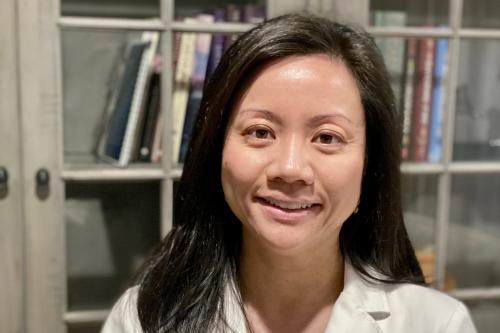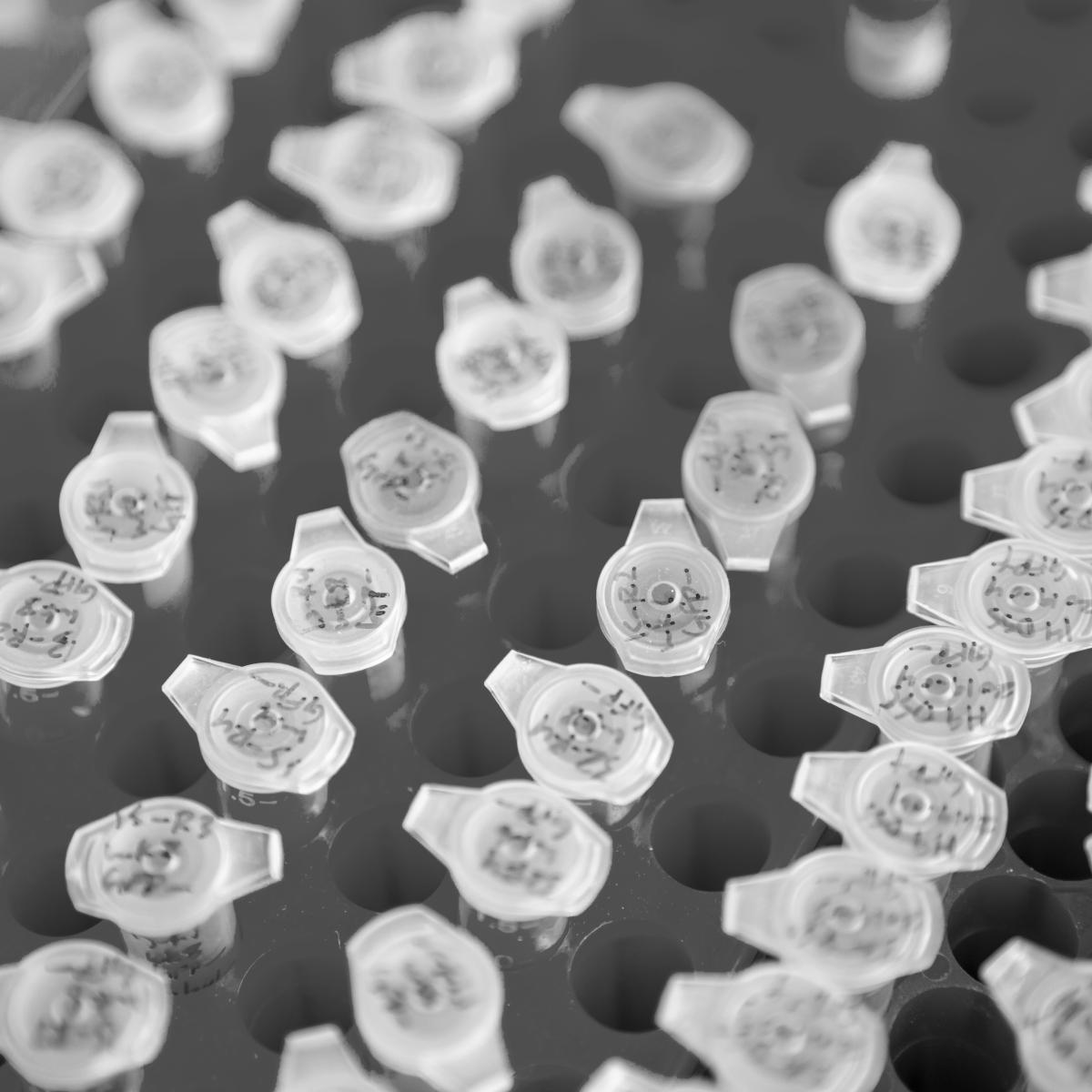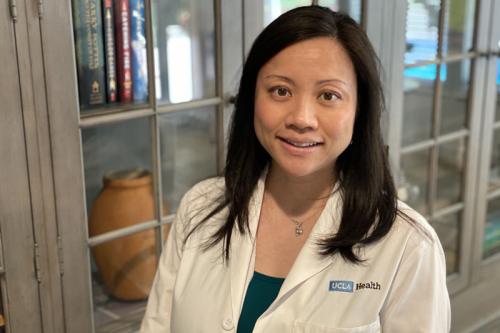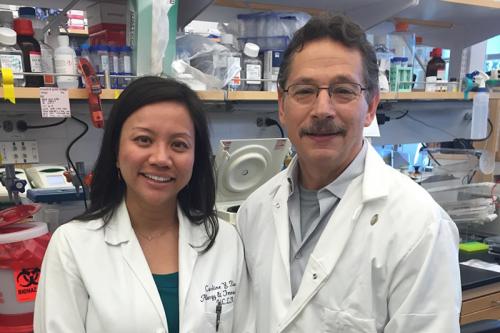
Caroline Y. Kuo, M.D.
- Assistant Professor, Pediatrics
- Assistant Professor, Human Genetics

A pediatric allergy and immunology specialist, Caroline Y. Kuo, M.D., treats patients with immunodeficiencies and recurring infections while advancing novel therapies for these conditions in the lab. She is particularly interested in developing gene therapies and improved methods for the modification of blood stem cells.
In addition to her clinical practice, Kuo has built a translational research program that revolves around the development of gene modification approaches for the treatment of rare immune deficiencies. Her research is focused on site-specific gene editing of blood stem cells for monogenic inborn errors of immunity using programmable nucleases such as TALENs and CRISPR/Cas9. Kuo is currently advancing a CRISPR/Cas9-based gene editing approach for X-linked Hyper IgM Syndrome to the pre-IND stage of development, as well as investigating methods to improve gene modification in stem cells without affecting their engraftment potential.
Kuo is also working to develop a novel gene therapy to treat dedicator of cytokinesis 8 deficiency, or DOCK8 deficiency, a rare genetic disorder of the immune system characterized by frequent infections of the skin and respiratory system. Those with DOCK8 deficiency are currently treated with stem cell transplants from a matched donor, but these procedures carry the risk of graft-versus-host disease, a condition in which transplanted cells attack the recipient’s body. Kuo’s proposed approach genetically modifies a patient’s own blood stem cells to restore DOCK8 production, potentially shifting the paradigm through which patients with this condition are treated.
Kuo oversees additional projects at earlier stages of pre-clinical development investigating gene modification for other rare primary immune deficiencies and serves as principal investigator or co-investigator for clinical trials of lentiviral vector gene therapies for several inborn errors of immunity including X-linked chronic granulomatous disease and leukocyte adhesion deficiency type I.
Research Projects
- Identifying safer and more effective ways to modify blood stem cells A type of tissue-specific stem cells found in the blood and bone marrow that can form various types of mature blood and immune cells. These cells play a crucial role in maintaining the body's blood supply and immune system by continuously producing new blood cells throughout a person's life. blood stem cells A type of tissue-specific stem cells found in the blood and bone marrow that can form various types of mature blood and immune cells. These cells play a crucial role in maintaining the body's blood supply and immune system by continuously producing new blood cells throughout a person's life.
- Developing
gene therapy
A technique that uses a gene or gene(s) to prevent, treat or cure a disease or disorder. Most gene therapies work by adding a healthy version of a gene to replace one that is defective or missing into the genome of particular cells. Some of these therapies use viral vectors to deliver genes into target cells.
gene therapy
A technique that uses a gene or gene(s) to prevent, treat or cure a disease or disorder. Most gene therapies work by adding a healthy version of a gene to replace one that is defective or missing into the genome of particular cells. Some of these therapies use viral vectors to deliver genes into target cells. and
gene editing
A type of gene therapy that works by delivering genetic material that can directly edit pieces of DNA within a cell. This changes the instructions the DNA encodes for, which ultimately results in an increase or decrease in the production of a certain protein and the restoration of proper cell function.
gene editing
A type of gene therapy that works by delivering genetic material that can directly edit pieces of DNA within a cell. This changes the instructions the DNA encodes for, which ultimately results in an increase or decrease in the production of a certain protein and the restoration of proper cell function. approaches to treat inborn errors of immunity, a group of rare genetic disorders that impact the immune system from birth
- Translating gene therapies to early phase clinical trials
- Establishing a gene therapy development pipeline for other rare immunodeficiencies
-
Medical Board Certifications
- Allergy and Immunology, American Board of Allergy and Immunology, 2014
- Pediatrics, American Board of Pediatrics, 2010
Fellowships
- Allergy & Immunology, David Geffen School of Medicine at UCLA, 2014
- Pediatrics, UCLA Medical Center, Harbor, 2011
Residency
- Pediatrics, UCLA Medical Center, Harbor, 2010
Internship
- Pediatrics, UCLA Medical Center, Harbor, 2008
Degree
- M.D., USC Keck School of Medicine, 2007
-


